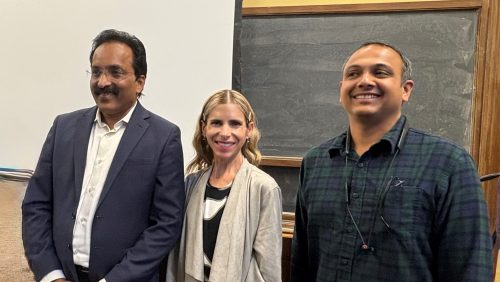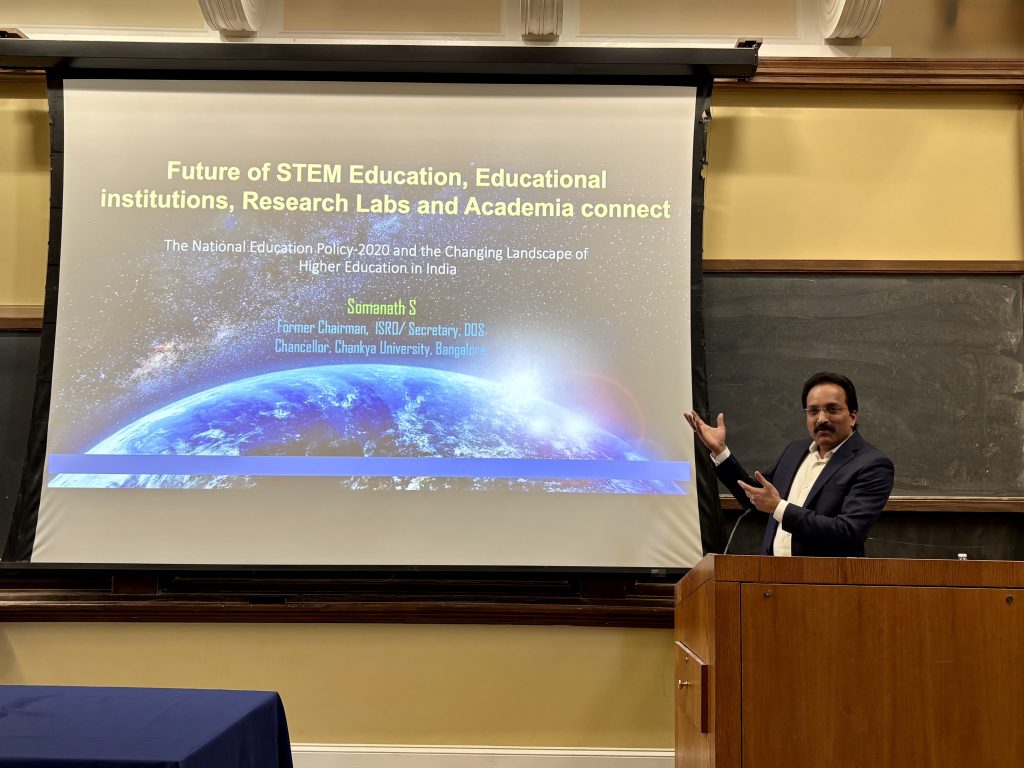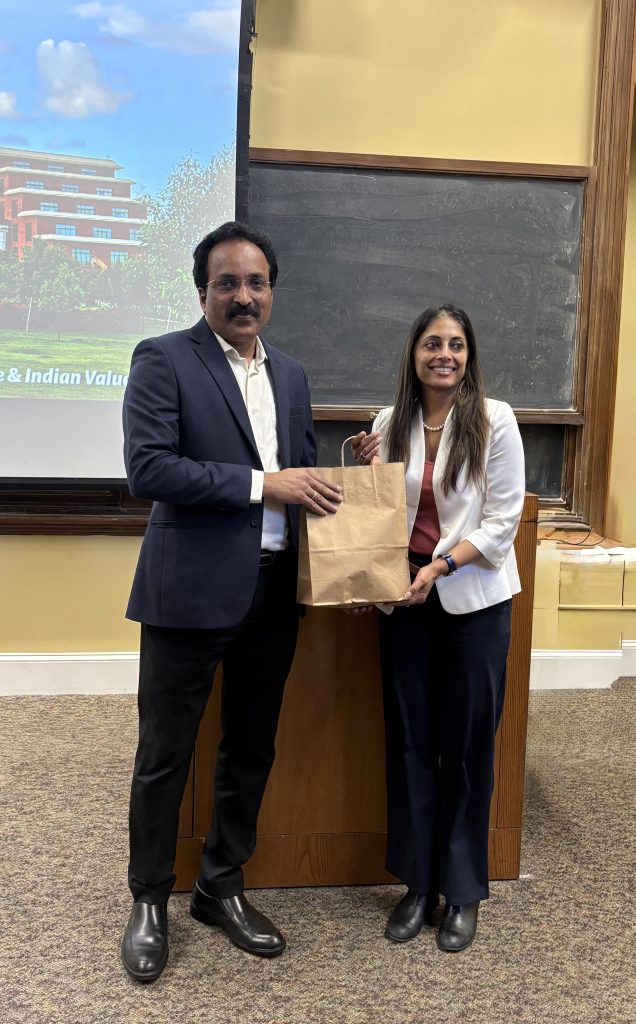
GKII Co-Hosts Seminar on the Future of India’s Education
“Future is a technology-driven world. Absorb the change and adapt to remain relevant.”-- Dr. S. Somanath

The Solomon. H. Snyder Department of Neurosurgery in partnership with the Johns Hopkins Gupta-Klinsky India Institute (GKII), recently co-hosted the Neuroscience Postdoctoral Career Guidance Series seminar, “The Changing Landscape of Higher Education in India.” The seminar featured Dr. S. Somanath, Chancellor of Chanakya University and former Chairman of the Indian Space Research Organization (ISRO), who led India’s historic Chandrayaan-3 mission, the first successful soft landing on the Moon’s south pole.
The event was organized by postdoctoral fellows Drs. Ninad Kothari, Qianwen Zhu, Yifeng Cheng, Srujan Singh, Varun Choksi, Jakub Ziak and Ravi Jayakumar, as part of the Neuroscience Postdoctoral Career Guidance Series and explored collaborative research opportunities, educational partnerships, and career pathways in India’s growing academic and innovation sectors for Hopkins faculty, students, and postdoctoral scholars.
“Dr. Somanath’s talk was a powerful reminder of the exciting transformation underway in India’s STEM ecosystem” Dr. Ninad Kothari, Postdoctoral Fellow, Department of Psychological and Brain Sciences said. “For the next generation of scientists, this was more than just a talk. It was a call to collaborate, create, and shape the next wave of discoveries through strong partnerships with India’s vibrant academic community.”

In his address, Dr. Somanath discussed the transformative impact of India’s National Education Policy (NEP) 2020, which is reshaping curriculum design, pedagogy, and institutional structures to promote creativity, critical thinking, and research excellence. He spoke about India’s emergence as a “startup nation,” emphasizing the country’s investment in industry-funded private universities and a multipronged innovation strategy focused on incubating enterprises and advancing skill-based learning to encourage a culture of technological self-reliance.
Dr. Somanath also analyzed the role of education against the backdrop of Viksit Bharat@2047, meaning “Developed India” by 2047, and India’s national vision to become a developed nation by the 100th anniversary of its independence in 2047. The initiative focuses on economic prosperity, technological advancement, infrastructure development, and social empowerment. To accomplish this goal, Dr. Somanath urged global institutions to embrace change and leverage technology to remain relevant in a fast-shifting world. Dr. Somanath’s seminar was also an invitation for students and postdoctoral fellows who would like to pursue a career at a Chanakya University. And, importantly, for faculty at Hopkins to join and collaborate with Chanakya University which is a new and upcoming university in India with aspirations to become a global leader in research and technology.
“India’s ambitious vision for expanding education offer powerful lessons in adaptability, innovation, and purpose-driven learning. GKII is proud to serve as a bridge through our JHU India Education Liaison Services program events to bring timely insights from our Indian partners to Johns Hopkins administrators, faculty, and students,” Beth Romanski, GKII Program Manager and India RISE Curriculum Director said. “Through these conversations, our goal is to foster more globally connected, equitable approaches to education and research collaborations between Hopkins and India promoting knowledge-sharing and global learning opportunities.”